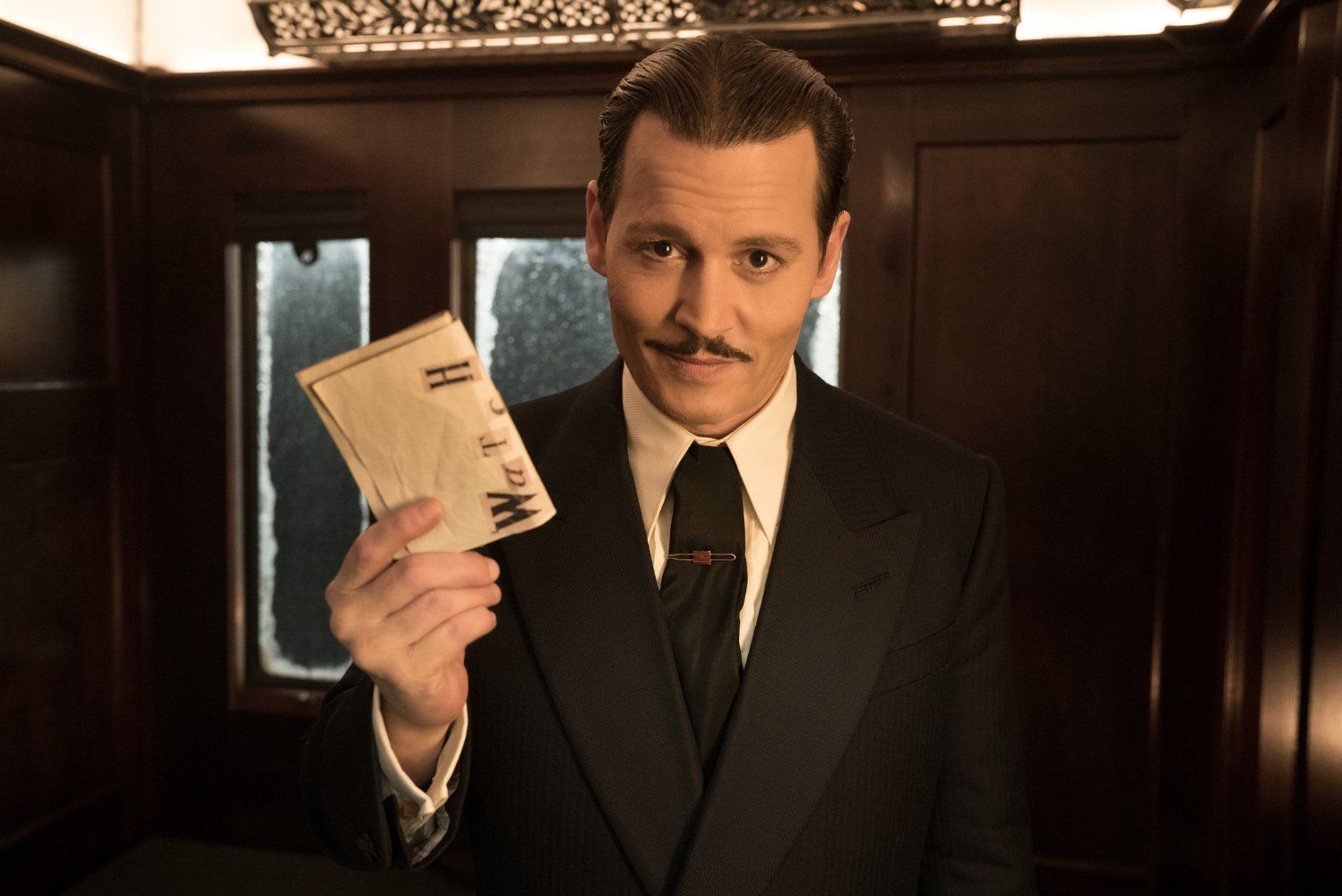Few literary characters have ever been interpreted as definitively as David Suchet’s Poirot. The two have become so inextricable that I can’t imagine one without the other. And there are not even any extra stories to adapt: from 1989 to 2013, Agatha Christie’s Poirot adapted every single Poirot novel and short story into feature-length episodes.
Who could have the confidence to look at this achievement, not five years later, and say, “I can do it better”? Well, with 2017’s Murder on the Orient Express we have our (retrospectively obvious) answer: Kenneth Branagh.
I can’t hide my general feelings about Branagh: I think he’s a smug shit. I think he only succeeds (Gilderoy Lockhart, say, or Benedick in Much Ado) as an actor when he plays smug shits. (He probably thinks these performances are successful because he is such a skilled actor, and not just because they are so similar to his real self; this, in turn, amplifies his smug shittery.)
 Branagh’s Poirot is not simply awful because he is different from Christie’s novels; he is awful because he is different in ways that serve only to make him more boring. This Poirot takes time out to stare longingly at a picture of a lost love (who has no particular characteristics except being lost and being loved), when the original Poirot seems to have misplaced his penis and never spent much time trying to find it. This Poirot repeatedly gets into fights and chases. This Poirot is stern and serious and interrogates his suspects like Perry Mason.
Branagh’s Poirot is not simply awful because he is different from Christie’s novels; he is awful because he is different in ways that serve only to make him more boring. This Poirot takes time out to stare longingly at a picture of a lost love (who has no particular characteristics except being lost and being loved), when the original Poirot seems to have misplaced his penis and never spent much time trying to find it. This Poirot repeatedly gets into fights and chases. This Poirot is stern and serious and interrogates his suspects like Perry Mason.
OK, fine. He is something much more boring than Poirot the character ever was before: just another detective, one that could have stepped out of any CBS procedural, complete with obsessive-compulsive disorder and a steely stare. He is a Protestant Poirot, not a Catholic one. But as Peter Ustinov said, when he overheard Christie’s granddaughter complaining that “he wasn’t anything like Poirot”: “Well, that’s how he is now!”
So what are we left with when we ignore Branagh’s performance? We are left with yet another adaptation of one of the most over-adapted mystery novels, Murder on the Orient Express.
There is no real way to make a big-budget adaptation of most classical detective novels. Other than the detective, and occasionally their goofy assistant, there are no real impressive roles. None of the innocent suspects get to emote much more than to break down under questioning; the guilty suspect rarely gets to do much but flee when it all comes out.
 Orient is different. (Spoilers, I suppose, for an 84-year-old novel.) The twist is basically common knowledge: all the passengers on the train committed the murder together. They are mostly travelling under false names and false stories; they all came to murder the repulsive Ratchett (Johnny Depp, who, in a very cathartic scene, is stabbed repeatedly).
Orient is different. (Spoilers, I suppose, for an 84-year-old novel.) The twist is basically common knowledge: all the passengers on the train committed the murder together. They are mostly travelling under false names and false stories; they all came to murder the repulsive Ratchett (Johnny Depp, who, in a very cathartic scene, is stabbed repeatedly).
And so we get a cast packed with British and American actors, each of whom require three scenes to lie in and one scene to break down in. We are left with a film desperately longing for emotional depth.
But this is the mistake that even the BBC’s Poirot made in adapting Orient Express. It is so easy to try to wedge a metric ton of emotional heft into the final pages, when Poirot decides not to report the truth and let the murderers free.
But neither the Poirot character nor the Poirot novels — not even the classical murder mystery in general — work with emotional depth. Poirot is a character of surfaces, and all of Poirot’s mysteries are mysteries of surfaces. Is that enough? It was enough for the best seasons of Poirot–the-show; it was enough for generations of Christie’s readers; it was enough for hundreds of the classical murder mysteries that were written.
We may simply be at a point with Hollywood where it is difficult to make movies truly of surfaces. That may or may not be a shame, but it makes it impossible to make a good film out of a Poirot novel. In its final moments, Orient Express threatens a sequel, and having done decently at the box office it just might get it; hopefully they find less fertile ground for digging there.

